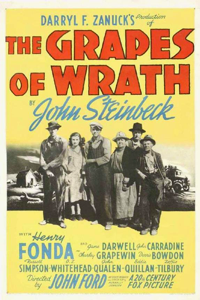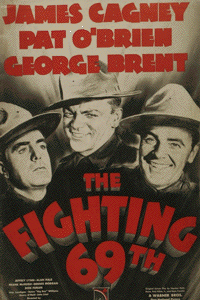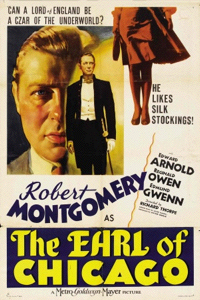- Articles
- Commonweal
- TIME – Reviews
- TIME – Articles
- TIME – Cover Stories
- TIME – Foreign News
- Life Magazine
- Harper’s: A Chain is as Strong as its Most Confused Link
- TIME – Religion
- New York Tribune
- TIME
- National Review
- Soviet Strategy in the Middle East
- The Coming Struggle for Outer Space
- The Left Understands the Left
- To Temporize Is Death
- Big Sister Is Watching You
- Springhead to Springhead
- Some Untimely Jottings
- RIP: Virginia Freedom
- A Reminder
- A Republican Looks At His Vote
- Some Westminster Notes
- Missiles, Brains and Mind
- The Hissiad: A Correction
- Foot in the Door
- Books
- Poetry
- Video
- About
- Disclaimer
- Case
- Articles on the Case
- Hiss Case Coverage: TIME 1948
- Hiss Case Coverage: TIME 1949
- Hiss Case Coverage: TIME 1950
- Hiss Case Coverage: TIME 1951
- Hiss Case Coverage: TIME 1952
- Trial by Typewriter
- I Was the Witness
- The Time News Quiz
- Another Witness
- Question of Security
- Fusilier
- Publican & Pharisee
- Recent & Readable
- Recent & Readable
- Kudos
- Letters – June 16, 1952
- Readable
- Letters – June 23, 1952
- Recent & Readable
- Recent & Readable
- Recent & Readable
- Nominee for Veep
- Recent and Readable
- Recent and Readable
- Democratic Nominee for President
- Recent & Readable
- Recent & Readable
- Fighting Quaker
- Recent & Readable
- Recent & Readable
- Recent & Readable
- Timely Saints
- Nixon on Communism
- People
- Who’s for Whom
- 1952 Bestsellers
- Letters – December 15, 1952
- Year in Books
- Man of Bretton Woods
- Hiss Case Coverage: TIME 1953
- Hiss Case Coverage: TIME 1954
- Hiss Case Coverage: TIME 1955
- Hiss Case Coverage: TIME 1956-1957
- Private
Cinema: Grapes of Wrath
Monday, Feb. 12, 1940
Cinema: The New Pictures
 The Grapes of Wrath (20th Century-Fox). It will be a red rag to bull-mad Californians who may or may not boycott it. Others, who were merely annoyed at the exaggerations, propaganda and phony pathos of John Steinbeck‘s best selling novel, may just stay away. Pinkos who did not bat an eye when the Soviet Government exterminated 3,000,000 peasants by famine, will go for a good cry over the hardships of the Okies. But people who go to pictures for the sake of seeing pictures will see a great one. For The Grapes of Wrath is possibly the best picture ever made from a so-so book. It is certainly the best picture Darryl F. Zanuck has produced or Nunnally Johnson scripted. It would be the best John Ford had directed if he had not already made The Informer.
The Grapes of Wrath (20th Century-Fox). It will be a red rag to bull-mad Californians who may or may not boycott it. Others, who were merely annoyed at the exaggerations, propaganda and phony pathos of John Steinbeck‘s best selling novel, may just stay away. Pinkos who did not bat an eye when the Soviet Government exterminated 3,000,000 peasants by famine, will go for a good cry over the hardships of the Okies. But people who go to pictures for the sake of seeing pictures will see a great one. For The Grapes of Wrath is possibly the best picture ever made from a so-so book. It is certainly the best picture Darryl F. Zanuck has produced or Nunnally Johnson scripted. It would be the best John Ford had directed if he had not already made The Informer.
Part of the credit belongs accidentally to censorship and the camera. Censorship excised John Steinbeck’s well-meant excesses. Camera-craft purged the picture of the editorial rash that blotched the Steinbeck book. Cleared of excrescences, the residue is the great human story which made thousands of people, who damned the novel’s phony conclusions, read it. It is the saga of an authentic U. S. farming family who lose their land. They wander, they suffer, but they endure. They are never quite defeated, and their survival is itself a triumph.
Because the picture deals with everyday U. S. types, casting was all-important. Key character was Ma Joad (Jane Darwell). If she was wrong, the picture could never be in focus. She is magnificent. Russell Simpson is owlish Pa Joad. He is also a million men who plough, seed and harvest U. S. farms. Only star used was Henry Fonda (Tom Joad). For him the part was a throwback to one of his best roles, the young lineman in Slim. Others like John Carradine, Charley Grapewin, Zeffie Tilbury, John Qualen, Eddie Quillan, Frank Darien have played minor roles in pictures for years and played them well. Each was as essential to The Grapes of Wrath as its scores of Okies, filling station men, cops, deputies. And each is right.
The Americans of this second westward trek are still fighting the desert, the mountains, hunger, thirst, death. Tame Indians stand and wonder at them. The Indians these modern pioneers fight are California deputies who resent the invasion of their State as much as earlier red men resented earlier whites. These are in a better position to show resentment.
The old people die on the march. There are great simple moments like the burial of Grandpa (Charley Grapewin). Wisely Nunnally Johnson has retained only the bare bones of dialogue from the novel. So the burial scene is terser, more moving in picture than in book. High point is still Tom Joad’s quiet rebuke when the irreligious Preacher (John Carradine) does not want to speak at the grave: “Ain’t none of our folks ever been buried without a few words.” There is the note Tom Joad writes to bury with the body: “This here is William James Joad, dyed of a stroke, old, old man. His fokes buried him becaws they got no money to pay for funerls. Nobody kilt him. Jus a stroke an he dyed.” John Ford’s touch is everywhere. It is in Tom Joad’s laboriously adding an s to funerl in the burial note. It is in the marvelous pantomime as Ma Joad burns her box of letters and keepsakes before starting west—a silent scene that is broken by two meaningful words: “I’m ready.” It is in the three tense worried faces reflected in the windshield of the jaloppy as the family crosses the weird desert at night. Above all, it is in the ironically recurring song of the mockingbird, heard in the distance as the family first sights California’s orchards.
It is no more important that California deputies kill strikers than that Tom Joad is a killer before the picture begins, kills again before it ends. It is equally unimportant that the Preacher, who has never understood religion, becomes an agitator, or that Tom Joad becomes a fugitive from justice. Ma is the important thing in The Grapes of Wrath, for Ma begins as one thing, ends as another. A bewildered, homeless, heartbroken woman when the picture opens, at its close she is an immovable force, holding the crumbling family together against things she does not even understand, against agitators as well as deputies.
As played by Jane Darwell, Ma is a great tragic character of the screen, even her victory is tragic. She can win it only by losing everything. But faced with hunger, homelessness, death, she sees that none of these was important. Ma is the incarnation of the dignity of human being, and the courage to assert it against odds.
 The Fighting 69th (Warner Bros.), a fictionized account of the intimate life and exploits of Manhattan’s famed World War regiment continues, in slightly modified form, Warners’ long time efforts to refine through suffering the character of their ace triggerman, James Cagney. Sometimes the effort has resulted in Mr. Cagney’s death (The Roaring Twenties). Sometimes he survives (Here Comes the Navy). In either case his reward has usually been the love of a pure, high minded girl. As Jerry Plunkett, a Brooklyn braggart, James Cagney is not only a disgrace to his semisavage comrades, but he turns coward under fire. Reclaimed by a well-placed shot and the ministrations of Father Duffy (Pat O’Brien), Jerry dies in battle. But this time valor is its only reward. There is not a girl in The Fighting 69th, luscious Priscilla Lane having been withdrawn at zero hour from the stag cast by what seems a prudent studio decision.
The Fighting 69th (Warner Bros.), a fictionized account of the intimate life and exploits of Manhattan’s famed World War regiment continues, in slightly modified form, Warners’ long time efforts to refine through suffering the character of their ace triggerman, James Cagney. Sometimes the effort has resulted in Mr. Cagney’s death (The Roaring Twenties). Sometimes he survives (Here Comes the Navy). In either case his reward has usually been the love of a pure, high minded girl. As Jerry Plunkett, a Brooklyn braggart, James Cagney is not only a disgrace to his semisavage comrades, but he turns coward under fire. Reclaimed by a well-placed shot and the ministrations of Father Duffy (Pat O’Brien), Jerry dies in battle. But this time valor is its only reward. There is not a girl in The Fighting 69th, luscious Priscilla Lane having been withdrawn at zero hour from the stag cast by what seems a prudent studio decision.
Aficionados who know a first class carnage when they see and hear one ought to like this picture. There is seldom a dull moment.
Others will be willing to take James Cagney’s word for it. Asked during a lull in shooting the picture what was going to happen next, Cinemactor Cagney eyed his questioner, demanded incredulously: “Are you really that interested?”
The Earl of Chicago (Metro-Goldwyn-Mayer). For years Robert Montgomery made out very handsomely as a Hollywood type. To cinemaddicts he was a slickly turned-out young man of the world whose scintillant wisecracks regularly wowed Joan Crawford. But all the while Robert Montgomery wanted to be a gangster. Much against its better judgment his studio at last let him play a sneering homicidal bellhop in Night Must Fall. Cinemactor Montgomery had a high old time murdering Dame May Whitty, and critics thought it was pretty good too. But the U. S. cinemasses, who can spot a phony on the screen as quickly as on the street, stayed away from the box office. They thought Robert Montgomery was not the type.
 In The Earl of Chicago, persevering Robert Montgomery is at some pains to show them they were wrong. As Silky, a sly, post-Prohibition Chicago gangster, who inherits an ancient and honorable British earldom, young Mr. Montgomery proves that his criminal instincts are sound. His triumph is all the more thumping because, as a movie, The Earl of Chicago never quite knows where it is going. Starting as a comedy in Chicago, it turns into stark drama under the impact of British manners and manors. Silky, once a carefree, moronic young mobster, snapping rubber bands at a pair of shapely legs (their tantalizing owner never steps into the picture), goes to his death (by hanging) in the regalia and with the dignity of a peer of the realm.
In The Earl of Chicago, persevering Robert Montgomery is at some pains to show them they were wrong. As Silky, a sly, post-Prohibition Chicago gangster, who inherits an ancient and honorable British earldom, young Mr. Montgomery proves that his criminal instincts are sound. His triumph is all the more thumping because, as a movie, The Earl of Chicago never quite knows where it is going. Starting as a comedy in Chicago, it turns into stark drama under the impact of British manners and manors. Silky, once a carefree, moronic young mobster, snapping rubber bands at a pair of shapely legs (their tantalizing owner never steps into the picture), goes to his death (by hanging) in the regalia and with the dignity of a peer of the realm.
Part of the credit for making this somersault admirably smooth instead of ridiculous belongs to Producer Victor Saville (Goodbye, Mr. Chips) and Director Richard Thorpe (Night Must Fall). Part belongs to British Actor Edmund Gwenn for a first-rate performance as the butler who is submissive, not subservient. But most of the entertainment in The Earl of Chicago, and that is plenty, is provided by Robert Montgomery’s transformation of his playboy grin into a fixed moronic stare, his playboy titter into a loony hee-hee, his playboy aplomb into gangster arrogance.
One Response to Cinema: Grapes of Wrath
Leave a Reply Cancel reply
This site uses Akismet to reduce spam. Learn how your comment data is processed.
Archives
Tags
Adolf Berle Alexander Ulanovsky Alger Hiss Arthur Koestler Atlas Shrugged Ayn Rand Benn Steil Cold Friday Cold War Communism Dwight Eisenhower FDR George W. Bush Ghosts on the Roof Harry Dexter White Harry Truman Hiss Case House Un-American Activities Committee HUAC Ignatz Reiss John Loomis Sherman John Maynard Keynes Joseph McCarthy Joseph Stalin Karl Marx Leon Trotsky Max Bedacht Middle East National Review Peter the Great Pumpkin Papers Ralph de Toledano Richard Nixon Ronald Reagan Sputnik TIME magazine Tony Judt Vladimir Lenin Walter Krivitsky Westminster Whittaker Chambers William F. Buckley William F. Buckley Jr. Winston Churchill YaltaArt Resources
- B&W Photos from Farm Security Administration-Office of War Information Collection
- Life of the People: Radical Impulse + Capital and Labor
- Art of Marxism
- Comrades in Art
- Graphic Witness
- Jacob Burck
- Hugo Gellert + Gellert Papers
- William Gropper
- Jan Matulka: Thomas McCormick Gallery + Global Modernist
- Esther Shemitz Chambers
- Armory Show 1913
Pages from old website
Official website of Whittaker Chambers ( >> more )
Spycraft
- China Reporting
- CIA
- CIA – Alger Hiss Case
- Cold War Files
- Cold War Studies (Harvard)
- Comintern Online
- Comintern Online – LOC
- CWIHP – Wilson Center
- David Moore – Critical Thinking and Intelligence Analysis
- DC Writers: WC Home
- Economist – Espionage
- Essays on Espionage
- FBI – Rogue DNS Checker
- House – Hearing 08/25/1948
- House – Hiss Subpoena
- InfoRapid: WC
- Max Bedacht
- New York Times – Espionage
- NSA – FOIA Request
- PBS NOVA – Secrets Lies and Atomic Spies
- Richard Sorge
- Secrecy News
- Sherman Kent – Collected Essays
- Spy Museum – SPY Blog
- Thomas Sakmyster – J Peters
- Top Secret America – Map
- UK National Archives
- Vassiliev Notebooks
- Venona Decrypts
- Washington Decoded
- Washington Post – Espionage
- Zee Maps
Libraries
- American Commissar by Sandor Voros
- American Mercury – John Land
- American Writers Museum
- Archive.org – HUAC
- Archive.org – Lazar home
- Archive.org – Lazar Report
- Archives.org: 1948 – Hearings
- Archives.org: 1950 – Sherman Lieber
- Archives.org: 1951 – Sorge
- Archives.org: Ernie Lazar FOIA
- Archives.org: Ernie Lazar FOIA Collection
- Bio – Bennet Cerf
- Bio – Zara Witkin
- Bloomsburg University: Counterattack
- Bloomsburg University: Radical Publications
- Brooklyn Eagle 1948
- Centre des Archives communistes en Belgique
- CIA FOIA WC
- Daily Worker (various)
- Daily Worker: Marxists.org
- DC – Kudos
- DC – ORCID
- DC – ResearcherID
- DC – ResearchGate
- DC – SCOPUS
- Digital Public Library of America
- Erwin Marquit – Memoir
- FBI
- FBI Vault – WC
- Google: Books – WC
- GPO – WC
- GW – ER Papers: WC
- GWU: Eleanor Roosevelt WC
- Harvard College Writing Center – WC Summary
- Hathi: WC
- IISH: Marx Engels Papers
- ILGWU archives
- Images AP
- Images Corbis
- Images Getty Time Life
- Images LOC
- INKOMKA Comintern Archives
- International Newsletter of Communist Studies (Germany)
- JJC/CUNY – HC
- Labor Archives in the United States and Canada
- Life – WC
- LOC LCCN WC
- NBC Learn K-12: Spy Trials
- New Masses (Archive.org) 1926–1933
- New Masses (Marxists.org) 1926–1933
- New Masses (USussex) 1926–1938
- NSA: FOIA requests
- Ollie Atkins Photos
- Open Library: WC
- People: WC
- Poetry: Defeat in the Village
- PSA Communism
- SLU Law: HCase
- SSRN: Berresford – Hiss Case
- SUFL: Collections
- Tamiment: Collections
- Truman Library – John S. Service
- Truman Library – Oral Histories
- Truman Library – WC
- UCBerk * eBooks
- UCBerk: China – Edgar Snow
- UCBerk: China – Grace Service
- UCBerk: China – Kataoka
- UCBerk: China – Mackinnon
- UCBerk: China – Owen Lattimore
- UCBerk: China – Stross
- UCBerk: France – Revolution
- UCBerk: Russia – Bread 1914-1921
- UCBerk: Russia – Comintern
- UCBerk: US – Conservatism WC
- UCBerk: US – Hollywood Weimar
- UCBerk: US – James Joyce
- UCBerk: US – Lawyers
- UCBerk: US – NY Intellectual
- UCBerk: US – Waterfronts
- UCLA Library Film & TV Archive
- UK National Archives: WC
- UMich: Salant Deception
- UPenn: US – Left Ephemera Collection
- UPitt: US – Harry Gannes
- USDOE
- USDoED
- USDOJ
- USDOS
- Wall St + Bolshevik Revolution – Anthony Sutton
- Wikipedia A-D
- WikiSearch WC
- WordPress themes – Anders Noren
- x FSearch – WC


Thanks a lot for spending time to publish “Cinema: Grapes of Wrath | Whittaker Chambers”.
Thanks once more -Kit